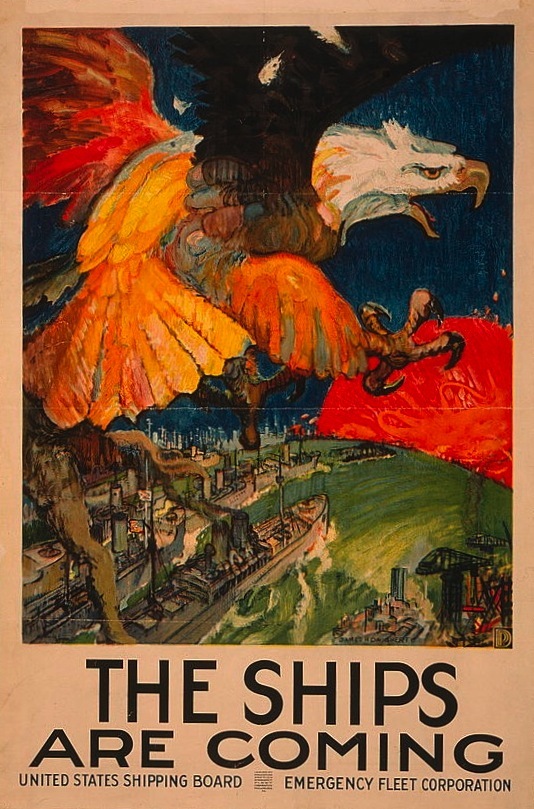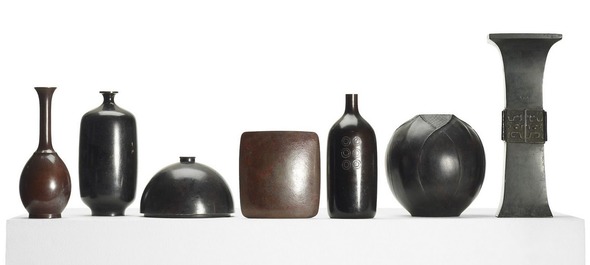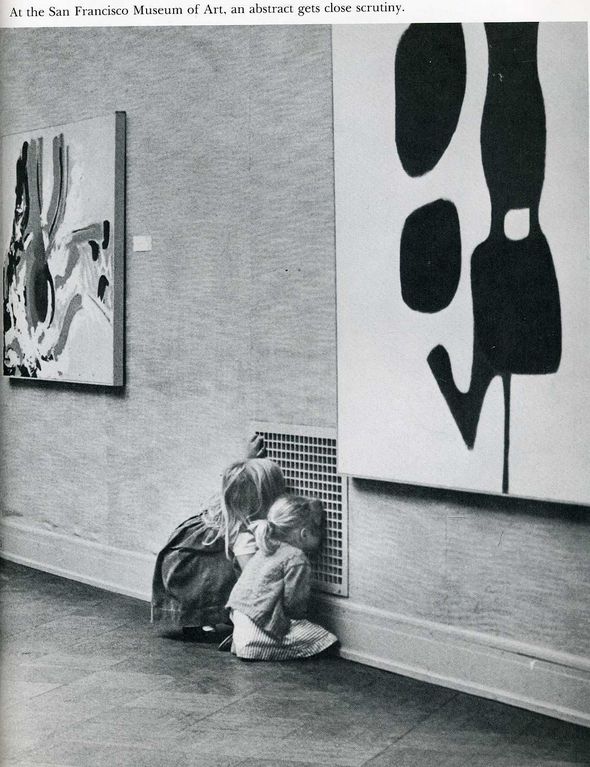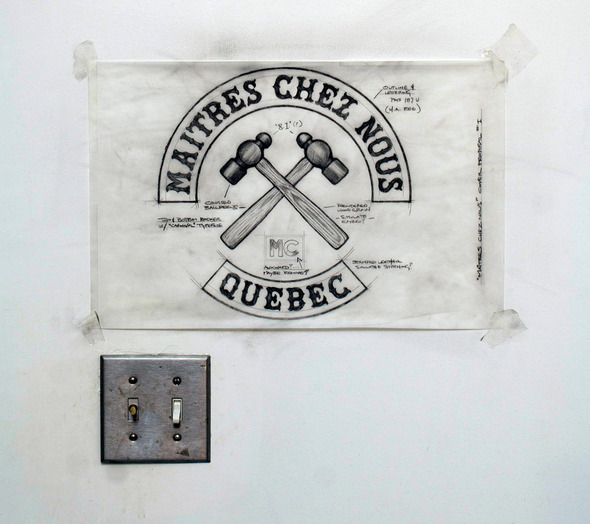A very old joke
I present what is surely one of the all-time great shaggy-dog stories: the disappointing suitor, from book six of Herodotus’ Histories.
Even in very early days the Alcmaeonidae were a distinguished family in Athens, and from the time of Alcmaeon, and afterwards of Megacles, they became very distinguished indeed. Alcmaeon, the son of Megacles, gave all the assistance in his power to the Lydians who came from Croesus at Sardis to consult the oracle at Delphi; and Croesus, when the Lydians told him of the good service he had rendered, invited him to Sardis and offered him, as a reward, as much gold as he could carry on his person at one time. Alcmaeon thought of a fine way of taking advantage of this unusual offer: he put on a large tunic, very loose and baggy in front, and a pair of the widest top-boots that he could find, and, thus clad, entered the treasury to which the king’s servants conducted him. Here he attacked a heap of gold dust; he crammed into his boots, all up his legs, as much as they would hold, filled the baggy front of his tunic full, sprinkled the dust all over his hair, stuffed some more into his mouth and then staggered out, scarcely able to drag one foot after another and looking, with his bulging cheeks and swollen figure, like anything rather than a man. When Croesus saw him he burst out laughing, and gave him all the gold he was carrying and as much again in addition. In this way Alcmaeon’s family suddenly found itself rich, and Alcmaeon was able to keep race-horses, with which he won the chariot race at Olympia.
But this is not the story; it’s just a zany preamble, in which the family patriarch, prefiguring Harpo Marx, waddles bug-eyed out of the treasury of Croesus, with his mouth crammed full of gold, trying to act casual. As one does. Anyway, here’s the setup:
In the next generation the family became much more famous than before through the distinction conferred upon it by Cleisthenes the tyrant of Sicyon. Cleisthenes, the son of Aristonymus, grandson of Myron, and great-grandson of Andreas, had a daughter, Agarista, whom he wished to marry to the best man in all Greece. So during the Olympic games, in which he had himself won the chariot race, he had a public announcement made, to the effect that any Greek who thought himself good enough to become Cleisthenes’ son-in-law should present himself in Sicyon within sixty days—or sooner if he wished—because he intended, within the year following the sixtieth day, to betroth his daughter to her future husband. Cleisthenes had had a race-track and a wrestling ring specially made for this purpose, and presently the suitors began to arrive—every man of Greek nationality who had something to be proud of either in his country or in himself.
So far, so good. Just to be clear, it isn’t Cleisthenes who’s descended from the fellow with the gold dust in his hair; it’s the guy who marries his daughter. And he is one of this crowd:
From Sybaris in Italy, then at the height of its prosperity, came Smindyrides the son of Hippocrates, a man noted above all others for delicate and luxurious living, and from Siris, also in Italy, came Damasus the son of Amyris who was nicknamed the Wise. Then there was Amphimnestus, the son of Epistrophus, from Epidammus on the Ionian Gulf, and Males from Aetolia—Males, the brother of Titormus who was the strongest man in Greece and went to live in the remotest part of Aetolia to avoid living with other human beings. From the Peloponnese came Leocedes the son of Pheidon, who was tyrant of Argos and the man who brought in the system of weights and measures for the Peloponnese—and also turned out the Eleans whose duty it was to manage the Olympic games and proceeded to manage them himself—the wickedest and most arrogant thing ever done by a Greek. Next there was Amiantus, the son of Lycurgus, from Trapezus in Arcadia, and Laphanes, an Azanian from Paeus, whose father Euphorion, the story goes, received Castor and Pollux under his own roof and afterwards kept open house for all comers; and then Onomastus of Elis, the son of Agaeus. From Athens there were two: Megacles, whose father Alcmaeon visited the court of Croesus, and Tisander’s son Hippocleides, the wealthiest and best-looking man in Athens. Euboea provided but a single suitor, Lysanias from Eretria, which at that time was at the height of its prosperity; then there was a Thessalian, Diactorides, one of the Scopadae, from Crannon, and, lastly, Alcon from Molossia. This was the list of suitors.
Don’t give me that TL;DR shit. Herodotus is like Croesus: he’s got so much gold he can afford to just throw it away. There are at least three stories in there I badly want to hear, but Herodotus doesn’t have time. Not that the story he is currently telling is in any way important to his overarching narrative; but there has to be a limit, and I guess musclebound hermits, dastardly bureaucrats, and couch-surfing demigods are just a digression too far.
Cleisthenes began by asking each in turn to name his country and parentage; then he kept them in his house for a year, to get to know them well, entering into conversation with them sometimes singly, sometimes all together, and testing each of them for his manly qualities and temper, education and manners. Those who were young he would take to the gymnasia—but the most important test of all was their behaviour at the dinner-table. All this went on throughout their stay in Sicyon, and all the time he entertained them handsomely.
What could go wrong?
For one reason or another it was the two Athenians who impressed Cleisthenes most favourably, and of the two Tisander’s son Hippocleides came to be preferred, not only for his manly virtues but also because he was related some generations back to the family of Cypselus of Corinth.
At last the day came which had been fixed for the betrothal, and Cleisthenes had to declare his choice. He marked the day by the sacrifice of a hundred oxen, and then gave a great banquet, to which not only the suitors but everyone of note in Sicyon was invited. When dinner was over, the suitors began to compete with each other in music and in talking in company. In both these accomplishments it was Hippocleides who easily proved his superiority to the rest, until at last, as more and more wine was drunk, he asked the flute-player to play him a tune and began to dance to it. Now it may well be that he danced to his own satisfaction; Cleisthenes, however, who was watching the performance, began to have serious doubts about the whole business. Presently, after a brief pause, Hippocleides sent for a table; the table was brought, and Hippocleides, climbing on to it, danced first some Laconian dances, next some Attic ones, and ended by standing on his head and beating time with his legs in the air. The Laconian and Attic dances were bad enough; but Cleisthenes, though he already loathed the thought of having a son-in-law like that, nevertheless restrained himself and managed to avoid an outburst; but when he saw Hippocleides beating time with his legs, he could bear it no longer. “Son of Tisander,” he cried, “you have danced away your marriage.” “Hippocleides doesn’t care,” was the reply. Hence the common saying, “Hippocleides doesn’t care.”
Priceless. Hippocleides earns a place in the ancient Greek vernacular, and something like immortality—2,600 years and counting, anyway—by getting soused and telling off a rich old prick whose daughter wasn’t that hot anyway. Pfft. Fuck ’em.
For those who need closure, Agarista marries the other Athenian suitor, Megacles, whose dad got all that gold from Croesus. Their son, Cleisthenes, introduces democracy to Athens, and Pericles is their great-grandson.
A joke
I was telling someone about Primo Levi’s Holocaust memoir If This Is A Man, at some length, and then I noted that it has a sequel. The sequel is not about the Holocaust, but about the immediate aftermath of the war, and about Levi’s protracted journey home. I was monologuing. The guy I was talking to was kind of a doughy dullard,1 and I had largely had to entertain myself that day. He was not a very interesting person; certainly not as interesting as I had hoped. To be fair, part of the reason he’d had so little to say over the course of the afternoon was that he had taken LSD for the first time in many, many years, and was probably pretty high. I had also taken acid. I had taken four times as much as he had, but I had not told him this, not wanting him to think about it. And then I had had to keep coming up with things to do, to keep from getting bored. I was talking to myself, which is a sort of default activity of mine, and talking incidentally to him, and I looked up and saw him staring at me and I thought how funny that was, after all my blather about Auschwitz and starvation and the erosion of personhood, to use the word “sequel”, and it made me laugh to think how it must sound, and then I said, “It’s called Holocaust 2,” which I thought was very funny. And then I said, “This time it’s personal.” I thought that was pretty funny, too.
Of course, it isn’t funny at all. There’s nothing funny about the Holocaust.2 It is possible to forgive Roberto Benigni or Steven Spielberg’s sentimentality only because it is all but impossible to look directly at the Holocaust. One looks instead off to one side, at some more or less conventional narrative, to be comforted and reassured by the essential orderliness of stories. Or, like a schoolchild looking at an eclipse through a pinhole, one interposes a few facts and figures (by now worn smooth), which stand in for the thing itself and give one the impression of not needing to know any more. More instructive is the experience of watching Claude Lanzmann’s Shoah, a ten-hour documentary offering very few laughs, and containing probably the most intimate and upsetting encounter with an unreconstructed SS officer it is still possible to have.
1 Never fear. If you are reading this, it isn’t you.
2 They should put that on one of those inspirational posters. “There’s nothing funny about the Holocaust.” Under a picture of Jerry Lewis.
 Feb 23, 2012 at 9:28 PM | tagged
Feb 23, 2012 at 9:28 PM | tagged  Books,
Books,  Drugs,
Drugs,  The Holocaust
The Holocaust Miss Kubelik, I adore you
Carey Mulligan is the Shirley MacLaine for a new era. No samsara jokes, please.
I enjoyed Drive more than I expected to, but felt a little ashamed. It’s hard to deny it is a very decadent film: the Byronic intensity! The smouldering! The lingering! And above all the gazing—punctuated by convulsions of the old ultraviolence.1 Is this what we’ve come to? Well. And isn’t the unnamed hero something out of a chanson de geste, what with his mighty steed and his noble mien? Such rarefied courtliness! Of course, a lack of carnality in the bedroom is made up for in dead Saracens. The white knight even sports prominent heraldry! The dissertation all but writes itself.
All joking aside, this is what straight action movies ought to be. I watched Escape From New York last week (for a reason, honest), and by the end I felt as though I’d spent the evening with a dry-cleaning bag over my head. And while the anachronism emphasizes John Carpenter’s essential want of taste, nothing much has changed since 1981. An instructive comparison to Drive might be Jason Statham’s breakout vehicle, a very typical piece of high-octane flatulence called The Transporter. Macho stoicism, fisticuffs, car chases, damsels in distress, moody glares, double-crosses—but only one of these films is functioning above the level of the limbic system. Which one is it?
1 In the words of Oliver Stone, “Holy shit—you see that fuckin’ head come apart, man?”
 Feb 19, 2012 at 9:44 PM | tagged
Feb 19, 2012 at 9:44 PM | tagged  Film
Film I want to understand
This is fun, where by fun I mean humbling and worrying: Daniel Davies has put together a choose-your-own-adventure simulation of this moment in the European debt crisis. I can’t pretend to really get it, being only a slump-shouldered, glassy-eyed moron; but just working through his decision tree with different parameters helps bring the issues into sharper focus.
 Feb 17, 2012 at 3:41 AM | tagged
Feb 17, 2012 at 3:41 AM | tagged  Politics
Politics Deadly patch/cover design for an imaginary book about the Quebec biker war.
 Feb 12, 2012 at 6:41 PM | tagged
Feb 12, 2012 at 6:41 PM | tagged  Books
Books 









